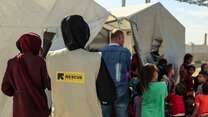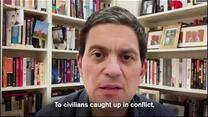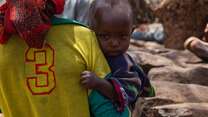With the establishment of the Grand Bargain in 2016, key humanitarian actors made several commitments to improve the quality of humanitarian funding. Since then, a growing body of evidence, including the work of the Grand Bargain Workstream on Enhanced Quality Funding, has shown that multi-year funding can deliver better results to people in humanitarian crises. Among other benefits, evidence shows that multi-year funding can make programme delivery more effective, lead to notable efficiency gains and contribute to gender equality. Despite certain progress being made, however, structural barriers remain, including risk aversion, which require continued momentum to ensure that funding retains its quality all the way to the frontlines of humanitarian action.
For this reason, in March 2022, David Miliband, President and CEO of the International Rescue Committee (IRC), co-launched the quality funding caucus together with European Commissioner for Crisis Management Janez Lenarčič.
The caucus was structured as a high-level dialogue among senior-level decision makers from major bilateral donors, UN agencies, the Red Cross/Crescent movement, and local and international NGO networks. Over the course of five months, the caucus aimed to broker an agreement on an increase in current levels of multi-year funding to first-and second-level funding recipients, in an effort to move existing Grand Bargain commitments forward. In the spirit of the quid pro quo, all funding recipients agreed on ways to demonstrate the added value of multi-year funding, ideally with flexible arrangements, to affected populations, to increase transparency and to ensure adequate visibility for donors’ contributions, bearing in mind safety, security and access concerns.



